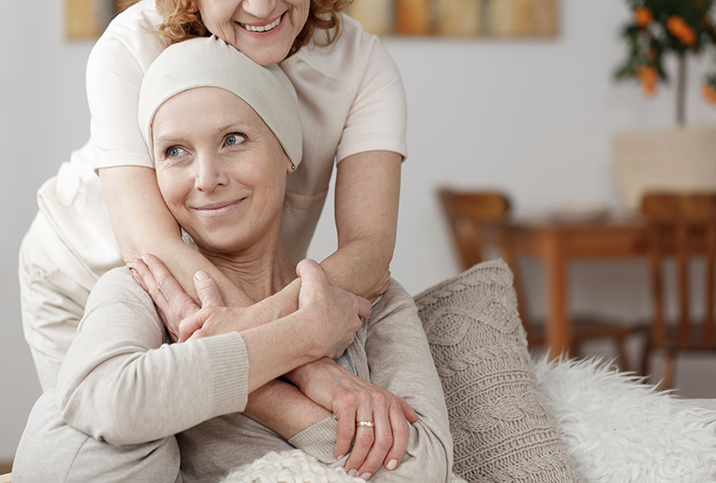Processing the Trauma of Your Cervical Cancer Diagnosis

Shock, confusion and fear are just a few of the emotions you might be feeling after a cervical cancer diagnosis. While every woman experiences this news in her own way, rest assured you'll come to understand the coping mechanisms and options that work for you in time. Till then, here are ways to deal with the possible trauma.
Allow yourself to feel
Feeling strong and positive can help you process your diagnosis in a way that helps you cope. Obviously, when you are diagnosed with cancer, you might find it difficult to feel positive. Sadness, fear and worry are natural emotions given the circumstances. Mood swings might have you jumping from one emotion to another at any given moment. Avoid judging yourself for these feelings. And don't try to push down any emotional swings. Honor your ability to cope in your personal way, in whatever time it takes.
Know you are not alone
The American Cancer Society estimates about 14,480 American women will be diagnosed with invasive cervical cancer in 2021. Thousands have come before you, and until there are medical advancements to prevent or cure cervical cancer, more will follow. You are not alone in your struggle with this disease. Most major cities have local cancer support groups where you can meet others who will understand your experience. Ask your healthcare provider for brochures, websites or phone numbers to learn more about support groups in your area. If in-person support groups are unavailable, look into online forums. Support groups for your loved ones are also available.
Talk with someone
Consider discussing your feelings with a friend or family member. Maybe you are part of a church or social club with members willing to listen, guide and help during difficult times. Reaching out to others is a healthy way to process your diagnosis and the inevitable emotions that follow. Don't be afraid to create a supportive network. Consider seeking therapy or counseling. Many therapists specialize in working with clients who have a cancer diagnosis.
Learn more so you can make educated decisions
Your doctor is often your first source for information, but there is more to a diagnosis than the disease itself, and sometimes you want to dig a little deeper. Write down your questions and discuss them with your doctor at your next appointment. Get a friend or family member to come to appointments with you to take notes. Conduct online research or find books at the library. Ask your medical team for further sources of information. The more you learn, the more confident you'll feel when making decisions about your health care.
Let people help
Processing a cancer diagnosis, along with following a treatment plan, can be exhausting. Let friends and family know how to help you. Maybe you could use assistance around the house. Something as simple as a grocery or errand run might make a hard day easier. You might feel better knowing your children are kept busy or emotionally supported during this difficult time. Even a ride to and from an appointment could provide you with comfort. Let people around you help.
Recognize depression
It's natural and expected to experience a sense of loss after receiving a cancer diagnosis. Sometimes the treatment process can be overwhelming, and some patients might even feel like hope is out of reach. If feelings of sadness and depression grow stronger with time, talk to your healthcare provider. Your doctor should recognize the signs of depression and know how to help you.
Remember self-care is important
Take time for yourself. Appropriate exercise, a rounded or special diet and a good night's sleep can do wonders for the body and soul. Take a scenic stroll to appreciate nature's beauty. Put your feet up and relax when you need to recharge. When you take care of yourself, you help combat the stress and fatigue of cancer. Put yourself first.


















